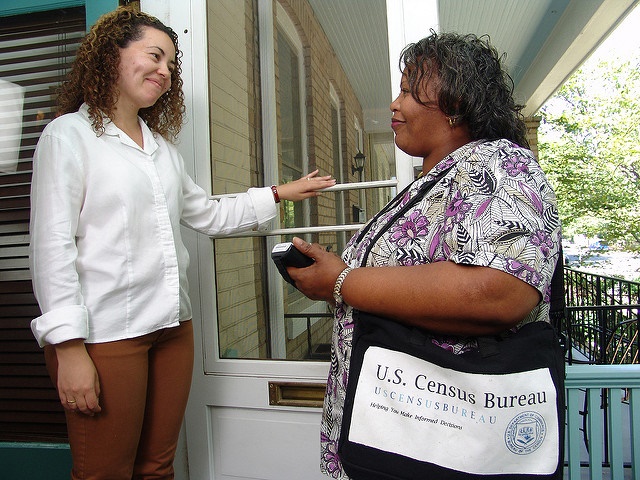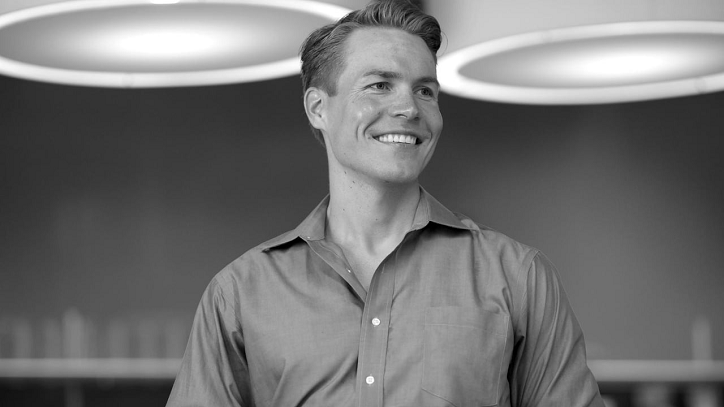What is the Meaning of “Life”?
The Declaration of Independence names three rights given to all human beings that no authorities can deny. One of those rights is the right to have ownership of one’s life. While life and death are frequently “administered” by mechanisms such as medical procedures, war, and criminal justice, the Founders believed that our birth, our creation as part of nature can never be predestined by the requirements of bureaucracy or the actions of legislators or jurists.
That said, government sources takes many actions that impact the full exercise of individuals’ quality of life, including through the use of policies to affect poverty levels, health care, physical security, and individual dignity.
Here are some current events and philosophical outlooks about the path that governments must tread in order to provide individuals the greatest opportunity and probability of exercising their most natural right — existence.

Learn More About “Life”

Data Capture: Why Big Brother Isn’t Always Scary
About 0.20 percent of the federal budget is used collecting statistics by government agencies. We’re not talking about surveillance or data mining, but the actual work of determining numbers on labor participation rates and other information valuable to business, policymakers, and families.
read more
Paid Family Leave: Economical Conclusions From Three U.S. States
President Trump, with a push from his daughter Ivanka, has been promoting paid family leave as a means to help families with income and work after the birth of a child or to care for a loved one who falls ill.
read more
A Safety Net That Works: Enforcing Child Support Payments
Child Support Enforcement is an issue that crosses partisan lines. Separation and divorce are an unfortunate circumstance of modern life, and child support delinquencies are not confined to one particular income level or political belief. At the same time, CSE was a major factor in reducing poverty among children after the 1996 welfare reform law was signed.
read more
Can a Tech Startup Cure Diabetes?
Donuts ARE delicious! But you didn’t need TPOH or Dr. David Shaywitz to tell you that. There is also a downside to donuts, and we all know what that is. Weight gain. And with weight gain and obesity come risks for diseases, most notably diabetes. So can a tech startup stop diabetes with an algorithm and remote log-in? And could this be a new horizon in health care?
read moreMore Stories
The Poverty Debate: Why We Don’t Agree on The Same Set of Facts
The political realm is a great place to toil if you aspire to be an armchair pugilist. Without much personally at stake in the outcome of the poverty debate, it is easy to pick a side and argue statistics and facts. But in the midst of all the fighting are real...
read moreUninformed America: Global Poverty Down Nearly 60% in 30 Years
The percentage of the world living in poverty has declined by nearly 60 percent in the last 30 years, from 52 to 21 percent. That is an astounding number, especially as the world population has risen from 4.933 billion to 7.215 billion in 2015, a 31.6 percent...
read moreAre Poor People More Optimistic Than Others About Their Futures?
Poor people are more likely than non-poor people to think that they will be able to pull themselves out of poverty. Forty-eight percent of the poor say most poor people will remain poor for a long time while 41 percent say poverty is a temporary condition. That compares to 60 percent of people who said that the poor will remain poor for some time.
read moreSocial Security Calculator Lets You Decide Reform Policy
At first, the news report that said that the Committee for a Responsible Federal Budget had created a Social Security calculator to determine how old readers will be when the Social Security Fund becomes insolvent seemed like a joke.
It appeared quite the sad interactive tool to ask people to use a calculator to see how old they will be when Social Security runs out when only two variables are at play. Well, turns out there’s more to the CRFB’s “Social Security Reformer” than just calculating your age in the year the retirement system goes bankrupt.
Pandhandling and Homelessness: One Mayor Who Looked the Problem in the Face and Helped
Mayor Richard Berry decided to test the truth behind the “Will Work for …” signs held by homeless panhandlers by actually starting a program to give work for hourly pay, lunch, and a shelter bed. Turns out many of the folks holding up the signs are willing to jump on the offer of a job.
read moreThe Value of $100 in Every U.S. State
The Tax Foundation has issued its annual report on what $100 gets you in each of the 50 states. It’s a great reminder of the cheapest and costliest places to live, and also provides some additional insight into why a national minimum wage doesn’t really make sense.
read moreCost of Higher Education to Spike From New Federal Loan Forgiveness Rules?
No one wants to be cheated in their learning after paying the pricey cost of higher education, and while some predatory for-profit institutions need to be reined in to prevent substandard college-level teaching, the creation of a new trigger in the Department of Education to cover the tab for students who didn’t get what they expected could be the next step in the push for universal higher education.
read moreThe Persistent Marriage Penalty and Its Impact on Family Formation
You thought this was resolved in the ’90s, didn’t you? It wasn’t.
“Almost one-third of Americans aged 18 to 60 report that they personally know someone who has not married for fear of losing means-tested benefits.”
That’s right, the marriage penalty still exists on families who receive government subsidies, and it is impacting more families as the safety net expands.
read moreHow Advanced Placement Classes Leave Kids Underprepared for College
A fascinating article that compares how well students perform in high school advanced placement classes and how they perform in college exposes the terrible disconnect created by high schools in teaching students how to think and hold critical discussion that occurs at the college level.
read moreHillbilly Poverty: Trump’s Appeal to Poor Appalachian Whites
The discussion of “hillbilly poverty” — a deep and abiding poverty that has been prevalent, but overlooked, for generations in the Appalachian region — seems to keep coming back to the fore, particularly this election season. It may be because white poverty is a blind spot to many Americans who are either white, but don’t live in poverty, or are non-white and unaware of or too preoccupied with their own identity struggles to worry about the white underclass. Or maybe most Americans are aware, but feel helpless to do anything about it.
read moreJoin the Social Movement
It is our moral duty to reclaim every American’s right to pursue his or her own happiness. Are you in?





